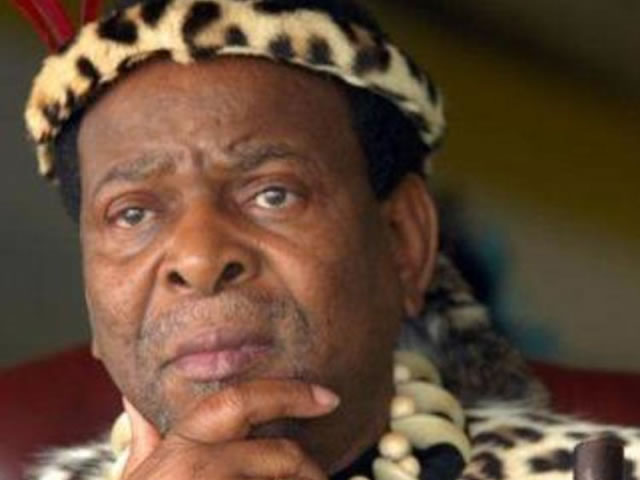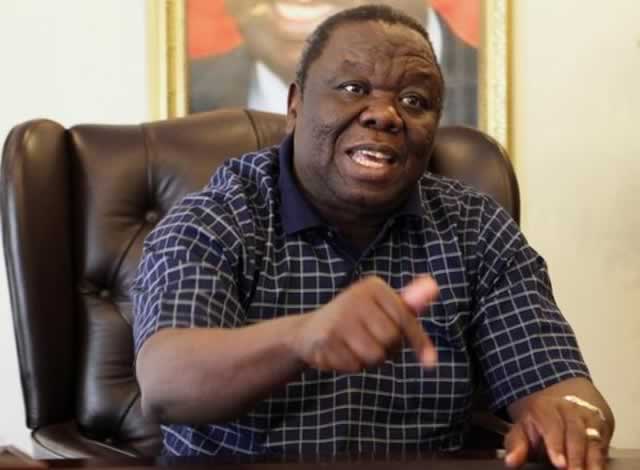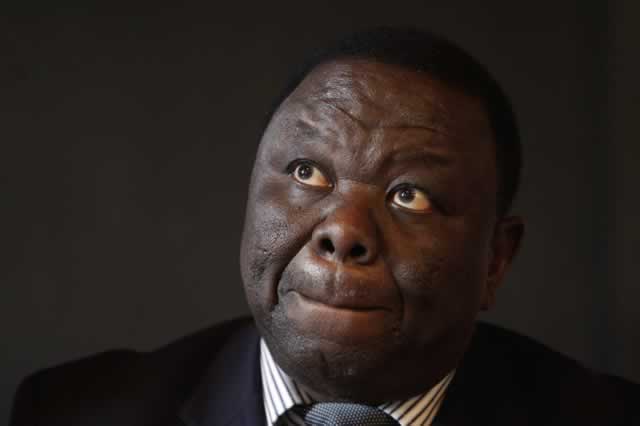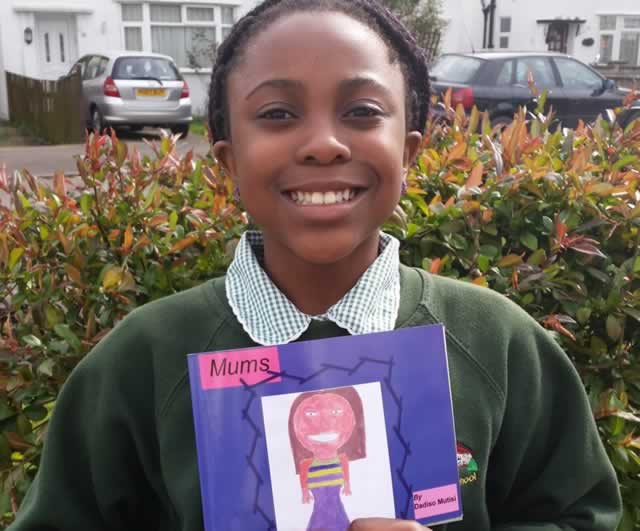South Africa: Wading into hard hat area

Nathaniel Manheru THE OTHER SIDE
I am intrigued by Tsvangirai’s own strange sense of an electoral boycott. He refuses to participate in by-elections lest his hard-up party confirms its terminal decline through a poor showing certain to put paid to claims of a post-split revival.
Of course he hides behind his clownish slogan of no elections before reforms.
Clownish because all the items which Mwonzora has listed for the boycott, led by a call for the country’s electoral system to go bio-metric, do not suggest a long-held and formulated grievance; simply an opportunistic, spur-of-the-moment argument fed by recent yet outlandish developments.
Until after the Namibian, more recently the Nigerian, elections, MDC-T could not spell “biometric”, let alone grasp its meaning.
How a new coinage encompasses an old thought, only Tsvangirai alone can say. I take it he weighed the risks between continued presence in parliament of renewal MPs and force-marching an un-biometric electoral system, and came to the conclusion that the former was a more hazardous affair!
When the bedroom breaks down
But there is a key contradiction, a key comedy conveying itself in multiples. His own legal aide, Magaisa decries Tsvangirai’s posture, arguing Zimbabwe’s electoral laws are as good as any in the region, whatever fears of institutional or operational deficits there may be.
These perceived shortcomings, further argues Magaisa, are precisely why MDC-T should participate, all to test and expose them, ahead of 2018. Such a compelling argument growling from within his own belly, makes Tsvangirai and his party look quite ridiculous.
Why have they not profited from in-house advice? Why is the advice being proffered so loudly, shouted from on rooftops? Has the bedroom broken down, gone unlivable?
The poll they have lost and endorsed
Secondly, the MDC-T has hurried past all parties to submit its nominations for proportional representation seats. The nominees include Mwonzora and Makone, the two officials sorely spat out in the last harmonised elections, like some discoloured gobble.
They have now found a backdoor, and are hurrying in. What the vote could not deliver, the court has granted; what an election killed, an altercation now yields! Except this is double damnation. Proportional representation seats are a concomitance of electoral seats, of an electoral exercise. They imply contested seats, in fact are underpinned by them.
You can never gain them unless someone else goes a-polling and in their case a-losing! And you cannot assume as righteous parliamentary benefits things that come simultaneously from a correlative process you decry as ill begotten.
Or from the same act which you used to create the electoral vacancies in the first place. So, let it be recorded in the electoral annals of Zimbabwe that Tsvangirai and his party acknowledged and participated in the by-elections they caused! And gladly walked away with the only possible pickings for losers, namely proportional seats! Zanu-PF need not have nightmares.
Vice of anonymity
But there is another level of absurdity. With the nomination over and the stage set for a campaign for the said by-elections, Tsvangirai goes on a campaign trail, ostensibly to explain to his constituencies why MDC-T is “boycotting” the by-elections, fundamentally to participate in those by-elections by stealth!
Arimo mundima, busy canvassing for his candidates he registered as Independents. Nothing subtle about this, only electoral politics incognito! He feared the risk of losing. I notice the Mujuru group is also hoping for the same kind of self-constraining duplicity. Come to think of it, anonymity is never a virtue in an environment of binary politics. Paste a name and get going. That is the rule.
We have exported serious crime
Call it xenophobia, afrophobia, negrophobia, whatever you will, the fact is South Africa has now drifted into hard hat area. Not just in and by itself, but in all its relations with the rest of the world.
It is appropriate to help it through a hard, candid conversation, the kind that honest neighbours give each other.
But first, our own hard lessons as Zimbabweans. Whatever the tragic side of the mayhem in South Africa, whatever its impact on Zimbabweans, there is one lesson which is salutary, but hard to admit, harder to pronounce on paper.
We have our 4 000 in South African jails: hardcore criminals incarcerated for very serious crimes. These are statistics coming from the South Africans, but corroborated by our own mission in that country, in the course of extending consular services to these prisoners.
We are not righteous victims. We have exported crime to South Africa and let’s show contrition.
Often, these bloody flash-points we rename xenophobic attacks have been triggered by serious crimes in the South African neighbourhoods, crimes often blamed on foreigners, Zimbabweans included. With that kind of statistic, we cannot plead victim, wholly, plead more killed than killing.
That ugly statistic blunted whatever sharp points President Mugabe may have hoped to needle his South African counterpart with, during the recent encounter.
Fouling home, going elsewhere
Secondly — and that is another hard point — we have, as Zimbabweans, this nasty habit of soiling our beds and then stealing into someone else’s bedroom, to borrow warmth, salubrious airs and sleep which the owner has laboured to prepare and conjure.
Once in there, we not only foul the new airs through our un-wiped hands; we also excoriate the bedroom we have deserted, we have soiled, as if it was never home. As if it will never be home again. The late Achebe put it so well. Asked if he will ever consider leaving Nigeria for a better world elsewhere, he answered: Nigeria is where God in his infinity wisdom planted me. I will never leave it for someone else’s better home, a home which he has taken the trouble to scour clean. Of course, after a crippling traffic accident, Achebe found himself in US, but for medical reasons. He died bound to a wheelchair, that great Nigerian.
Sanctifying breakaway politics?
I have had bitter arguments with the so-called Mthwakazi people: those un-proud Zimbabweans who snipe at home from the borrowed comfort of South Africa. They want to break away, want to slough off a chunk of Zimbabwe to patch it onto South Africa, “where they came from”. Really? And if they see a Shona-speaker in Durban, they harass him, reminding him KwaZulu Natal is their home by ancestry.
Well, in recent mayhem, they too got hacked! And the instigator of that deadly action was none other than the Zulu King, Goodwill Zwelithini. Much earlier, in the run-up to the 2013 elections, countless overtures had been made to South African interests by local politicians hailing from western Zimbabwe.
They sought patronage from South Africans, so they would be capacitated to fight elections on narrow tribal politics. The same King was especially accosted by these tribalists. On a happy day, King Zwelithini would tell President Mugabe the hard answer he gave these importuning politicians from home: do you expect the head of the Zulu monarchy to sanctify dissidence, to bless the disintegration of the same monarchy through criminal breakaways? You rebelled and broke away from the Zulu nation.
There is only one Mthwakazi and it is here in South Africa. If you crave for it, come back, at one for your sins, and maybe you shall be forgiven and reintegrated. It was a sharp rebuke, a sharp chastisement, one that collapsed deformed dreams. Asked if he ever longed to be repatriated to Africa, one leading African-African American retorted: I am a transplant floated by a cruel history into the Americas. That same cruel history planted me here. God, teach me to accept my new habitat, and to thrive in it. Is that too hard an answer to emulate?
Red hills of home
And it’s not just those few Ndebeles in the diaspora who have such a strange outlook. Shonas too, incorrigible failures anywhere and anytime, in Zimbabwe or elsewhere. Often, they congregate nocturnally on Studio 7, badmouthing home, badmouthing Zimbabwe.
They even claim to be political refugees, but refugees who come home every Christmas. Well, who came home every Christmas until the rand gave in to the dollar. Some even go as far as changing their names, twisting their tongues to ape South African accent.
Like saying: Give me my Cellophooni! A Karanga tongue roughened by fricative “r”s, from birth denied the gentle sweetness of labio-dental “l”! A Karanga tongue that says “I rove you”! My goodness! Is this what has become of us? As I write bus loads of such people have been doing round trips, ferrying them back home, remarkably terrified, sweetly happy to be landed home.
They have come home
They come accompanied by hair-raising stories. They have come home. They have come home. They have, yes, acknowledged home, and that is key! The same home they routinely congregate on Studio 7 to denounce, cheapen. I did not know that a blow of xenophobia, the okapi of xenophobia, the bullet of xenophobia, make nationalists of us, remind us of the red hills of home!
As unhappy Ndebeles, do we have to swop our full nationality for an adjunctive, South African one? Why self-flagellate in the hope of being avenged against a politician you judge to be failing you? And as it turns out, where you called home has turned out to be a cauldron? So? Deal with your home politics and home politicians; don’t desert home, call it names.
Assert your nationality; resolutely demand your space, mark your territory. Don’t cede. Bitterness, as happiness and satisfaction, is a key marker of nationality, never a reason for its effacement. As an unhappy Shona in the diaspora, do you have to cast aspersions on your country? Reject it like a village cur eaten by fleas, spotting weeping wounds?
The journey which began way back
The painful point I am making is that this horrific violence against us has jolted us into renaming home, into embracing home with the firmness of a repentant prodigal son. It has helped us mark boundaries of our nationality.
Home might not have jobs, might have limited opportunities. But home has peace, has regard, has dignity, which you can never get anywhere else in the world. Indeed, home is where you return, run to, hotly pursued by strange, xenophobic assailants who haul deadly missiles against your fragile life. Home, too, is that voice that speaks in your defence, that shouts and echoes your trodden rights in portals of power.
It makes a case for you in that foreign country, and if need be, evacuates you ahead of a menacing danger. Yes, home is your Government. I have been reading a big book tracing the “opening” up of this country by white hunters, white “explorers” and white missionaries.
This is well before 1890, say from 1835 onwards. Interestingly, those key historical testimonies record Zimbabweans who drifted down South, especially after the discovery and opening of diamond fields. Many would trek down to secure employment, save enough money to buy clothing and other western goodies.
Then they would drift home to clothe their families. Between them and Mzilikazi’s northward drift was short time. Yet they went north for home. Above all, they would work long enough to afford a gun, itself a prized weapon. With it, they would defend home, source for its unmet needs.
That is as far back as this business of trekking down South started, back in the 1840s! So, with your little life, two little feet, your little dreams, little troubles, you are not starting a new tradition, etching out a new destiny.
Only confirming an old one. It just happens that you are doing it now in 2015, under one Robert Mugabe, doing it under American and EU illegal sanctions that cripple your country and prospects.
Equally, I am writing this piece from Indonesia. A significant part of its population is scattered in many countries and regions of the world, ekeing out a living. They remit monies back home, and those remittances are a key input into their economy. They don’t excoriate home, or those they left behind, for being in the diaspora. Let our other half, that half wondering across and abroad, forever remember these little lessons, often reckoned, learnt and restated in bitterness.
Affluent white argument
I have said South Africa has hit a hard hat area; that it could do with a candid exchange with a neighbour across. But give it to them, the South Africans. They have been raising quite some searching, uncomfortable questions against themselves, unprompted, thanks to this outrage they cannot unanimously name just yet. Their quality press has been leading in the whole debate. Let me sample a few points coming through this candid debate.
One Hans Piennar admitted that the whole mayhem stemmed from a harrowing sense of inner inadequacy, a rankling sense of jealousy, on the part of the South Africans. They fear the foreigner, who is a better entrepreneur than they are. “Foreigners, like Jews, are resented because they tend to outperform others”, concludes this white man, obviously enjoying the colour-comfort of such an admission.
He is admitting on behalf of his black counterparts, hoping pushing the argument of black inadequacy, will exculpate white guilt, deservedly earned from the days of apartheid, itself a continuing shaping factor to this day. Look at these horrid blacks, so mean-spirited in a highly competitive global world. They are still ill-equipped, unable; that’s why we oppressed them under apartheid. It is an argument for affluent whites, one confirming their born-superiority. It must be rejected by all self-respecting blacks whatever grievances we might have against one another.
Hard statistics from home
The Financial Mail, itself again thoroughly white in sensibility, is even more self-admitting: “The violence is an offshoot of four interrelated problems: poverty, mass unemployment, wealth disparity, and an incompletely developed and arguably decaying social contract”. The paper admits that South Africa is “a developing and growing economy”, itself quite a humbling admission for a country which often points to an Africa which is outside of it, up north and beyond it. And the statistics do bear out this dire self-reading.
About 27 million South Africans, or nearly half of their number live below the poverty line. Sixty percent of township residents are unemployed. Currently, about 15,1 million South Africans are employed, with 5,1 million out of employment. With the exception of Limpopo province, unemployment in all other provinces has been increasing, with young people experiencing higher unemployment rates and lower absorption rates than adults.
In fact the unemployment rate for young people aged 15-24 years increased from 45,6 percent in 2008 to 51,3 percent in 2014. Much worse, unemployment rate for persons with qualifications below matric is thrice as high as that of persons with tertiary qualifications. These are the hard statistics culled from South Africa’s 2014 figures.
Macabre personality
Let’s humanise these figures. The slain Mozambican, one Emmanuel Sithole’s family says it does not trust the South African justice system. You can’t blame Sithole’s family. None of the white legal rights lobby which jumps to the assistance of white farmers here, and to the persecution of the Zimbabwe Government, is there for the Sitholes. No, they are the Sitholes, not Mike Campbells, the Ben Freeths! They are on their own, like all blacks. The family makes a more devastating point: their son was assailed by very youthful South Africans, and it makes them despair at what such tender age is capable of. The above statistics begin to assume monstrous significance. It’s much worse. All the images I have seen show the lynching of foreigners amidst gleeful South African by-standers, cheering South Africans.
These include women and children. The humanity of any society is measured not by the number of murderers it breeds, but by how its ordinary citizens respond to murder and death. South Africa gave us wild cheers in front of death, thereby showing its macabre personality where death enjoys voyeurism.
Nhova dzichiri kutambatamba
All these horrific scenes unfolded in townships, again already described by statistics above. “It is worth noting,” wrote the Financial Mail, “that not a single one of the black African victims was drawn from the middle or upper classes. In middle class South Africa, xenophobia really doesn’t exist.” The conclusion of the paper is very dire, if not panicky. Describing the mayhem as negrophobia, the Financial Mail concludes: “And it is rooted in desperate living conditions that have little to do with race, and everything to do with economics, and, tragically, unresolved issues from the past. The anger levels of destitute South Africans ought not be underestimated and the fact that they are now venting their frustrations on fellow black Africans ought not to be misunderstood.”
There is a real fear that some day such destructive anger shall look inward. Of course like all organs of propaganda for the propertied, the paper seeks to obfuscate matters. In South Africa, race and class coincide, thanks to apartheid. It’s tautological nonsense to discount race while accentuating economics. In South Africa economics gives classes which are largely races. Yet the paper has mustered unusual courage. It has recognised culpable apartheid which it euphemistically calls “the past”, as a key causal factor. That is remarkable. Most of all, it has not succumbed to a popular propaganda ploy of scrutinising the victims of the xenophobic attacks: by name, by family, by country, by politics, all in order to dodge a central question, all of it endogenous: who the culprit is: by name, family, residence, history, class, colour, country, etc, etc.
The latter shifts focus back to South Africa itself, something the ruling elite appears unready to do as yet. Back to South Africa itself, not to Sithole’s Mozambique as some kind of escapist odyssey. Here is a hard hat area, but the rulers seem to spot soft fontanelles, nhova dzichiri kutambatamba.
Broader Bantustans
Externally, South Africa has been rattled, badly rattled. Africa has responded in very telling and potentially devastating ways for the South African economy. Between themselves – Zimbabwe and Mozambique – can cripple South Africa’s northbound exports. Within itself, Mozambique can hurt South Africa’s outward investments. The response which the authorities in both countries have had to douse are menacing. Nigeria gloats, and has wasted no time in sticking the dagger in. Like self-hating Zimbabweans, South Africa has been rudely reminded it belongs to Africa and trades on African goodwill.
Often, this last born of the continent vainly carries itself about like the continent’s first born. One Zambian Vice President who is white, made that point. It is not nice, more so when that claimed seniority is founded on apartheid machinery we all fought to dismantle, and whose defeat yielded South Africa’s freedom. Far more dangerous than becoming another Zimbabwe, as Westerners are wont to warn it, is for South Africa to become a second and imperfect apartheid, one with black faces. When that happens, it turns all of us into Bantustans, little enclaves of warring tribes who have to be kept in constant conflict to let the unfair centre hold. Africa fought a system of apartheid; she is ready to escalate that fight should apartheid rear its ugly head again, under whatever guise.
The Harare test
A matter of days to come, an extraordinary SADC Summit will be held here in Zimbabwe. The one matter under discussion will be that of industrialising the whole region. South Africa will be represented, possibly at the highest level. Read against its own trade figures and GDP, South Africa over-towers all its neighbours. Not through better work ethic, far better endowments, better ingenuity, but as a legacy of the apartheid dominance days. It is better to talk of a long apartheid, one which reduces all economies in the region to anaemic satellites, long after its formal demise. Long after the demise of political apartheid, we have not refashioned relations to deal with the distortions of economic apartheid.
Quite the contrary, the current relations have expanded the playground for economic apartheid, all to our collective ruin. That need not be tragic. What is tragic is when the ANC government appear to relish this expansion, this dominance, and seek to legitimise it as black post-apartheid success it is not. To do so is to misread, or not read at all, statistics I gave above. It is not to see trouble gathering in the horizon, brewed by serious internal disequilibria. Above all, it is not to see the dialectical connection between seamless export traffic passing through Beitbridge up north, and the rugged trousered Zimbabweans and Mozambicans smuggling themselves into South Africa, and then into her jails.
The flow of business between South Africa and the rest of SADC need not be uni-directional. It must be a movement of many centres, something which a spatially balanced regional industrialisation strategy can easily achieve, indeed something SADCC sought to achieve before South Africa and SADC. We probably must search for the lost “C”, so we return to the way. The culprit for xenophobia are not the unemployed South African youths who killed Sithole, themselves victims; the culprit is a long apartheid, with its sucking tentacles, it’s tendency of creating a huge, transnational underclass, always at war with itself. Is Zuma ready to decapitate the apartheid dragon? Or is he about to defend it, to give it an African complexion? Let Harare test that.
Icho!











Comments